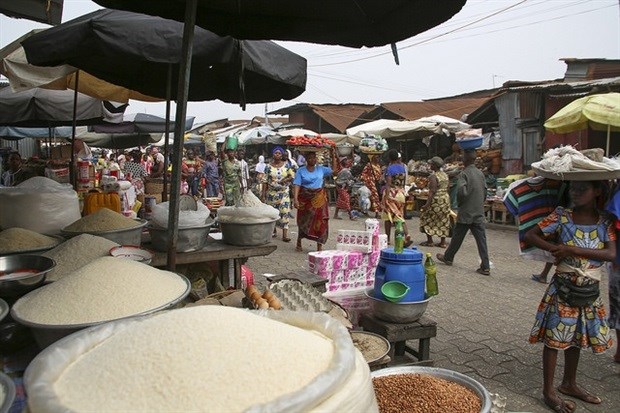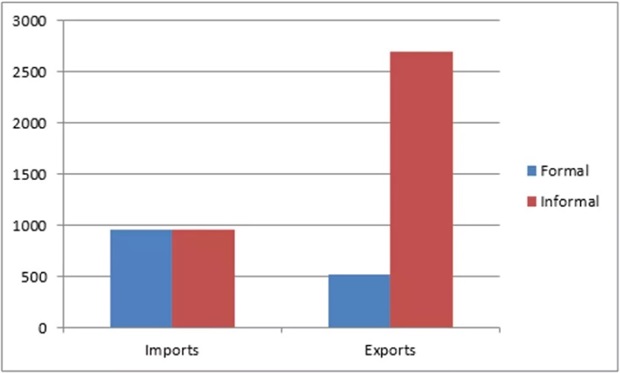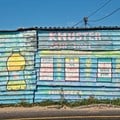
Credit: Flickr/IFPRI
There are a host of shortcomings that limit trade: non-tariffs barriers, red tape and insufficient infrastructure. Tariff barriers remain high outside areas covered by the agreements. Enhancing trade integration between African countries could yield large economic gains. This idea motivated the latest initiative for integration, the continental free trade area.
However, a large part of cross-border trade between African countries is informal. It either avoids customs entirely, or goes through official posts but is not recorded. Informal trade is difficult to measure. Most studies have relied on estimates based on partial surveys, or on accounting exercises. They concluded that a substantial share of Africa’s regional trade was informal, on the order of 30% to 40%.
Informal trade is pervasive for agricultural goods as well as many industrial goods. Some traders are entirely informal; others are registered businesses but escape trade regulations and duties nonetheless.
This gap in the measurement of actual trade is problematic for trade policy. Why is it so pervasive, and what should governments do about it?
Our recently published study goes some way to filling the gap by looking into the magnitude, composition and determinants of informal trade in Benin.
What we found
In 2011, the national statistics of Benin identified 171 non-official border points to conduct a survey of informal trade. As in many African countries, informal trade is pervasive in Benin. It operates in the open, and is tolerated, for the most part, by officials. Each border post was surveyed for a period of ten days. Each trader crossing the border (in either direction) was asked a short questionnaire about products and quantities traded, prices, origin and destination.
The rate of response to the survey was high. This means that, for the first time, there’s a representative sample covering all informal trade at a country’s borders that can be compared with the official trade data such as customs data.

Monthly values of Benin’s informal and formal trade with Nigeria, million FCFA, September 2011. 2011 exchange rate: 1USD=506FCFA. Re-exports, transit trade and gasoline trade are excluded. Credit: Customs, INSAE, authors’ calculations.
Using this data, our study confirms that informal trade is, in effect, a vital part of the trade system. For example, informal trade makes up the major part of trade in domestic products between Benin and Nigeria. Official statistics underestimate total trade by 50% for imports, and by about 85% for exports.
These figures are broadly in line with previous estimates for sub-Saharan countries. This confirms that trade statistics on the continent suffer from a serious blind spot.
Our study also shows that formal and informal trade differ by product composition. Informal trade isn’t restricted to livestock and a few agricultural goods. Product and sector diversity is high. For example, industrial products, such as textiles, agro-food, and transportation equipment are traded heavily on this channel.
Another noteworthy feature is that the product overlap between the formal and informal channels is very low: most goods are traded exclusively on one or the other.
This suggests that official statistics are also massively underestimating the product diversity in regional trade.
So why are some products traded formally, while others are exclusively traded informally?
Reasons for trade informality
We estimate that products facing high tariffs are more likely to be traded informally. Non-tariff barriers, such as sanitary and phyto-sanitary regulations, or technical barriers to trade (such as labelling requirements, quality standards), are also associated with more informality.
This suggests that complying with these regulations represents a cost for traders. They are therefore willing to avoid them by skipping the customs controls.
This raises serious questions around issues of product quality. There’s no doubt that controlling product quality and enforcing regulations is necessary for consumer protection. Frequent cases of food poisoning in Nigeria, and their association with informal trade show the importance of this issue.
The difficulty lies in distinguishing between enforcement and excessive requirements. For example, our research shows that a lot of perishable products are traded exclusively on the informal channel. This suggests that traders aren’t avoiding formal channels because they want to smuggle products that don’t meet health and safety standards. They simply want to sell products that would otherwise be spoiled if kept for too long.
Jane Battersby and Gareth Haysom 19 Sep 2018 How to address trade informality
There is a great deal of evidence that trade costs are high in sub-Saharan Africa. This is due to inadequate infrastructure, excessive regulations and requirements at customs, as well as harassment and bribery. The pervasiveness of informal trade is a symptom of this.
Reducing tariffs should help formalise some of this informal trade. But it is difficult to predict by how much. It’s possible that incentives to go informal remain high for many traders, even under the continent’s proposed free trade agreement, especially if preferential treatment is costly or difficult to obtain.
Some authors suggest giving specific support to informal traders, for instance access to simplified trade regimes. The rationale for this is that there are too many obstacles – procedural and infrastructural – preventing informal traders from operating within the official framework.
Informal trade is, in effect, a vital part of the trade system on the continent, improving food security, and providing a source of income for a substantial share of the population. By reducing trade costs for a large share of (less visible) trade operators, specific facilitation measures could offer valuable opportunities to reduce poverty.





























